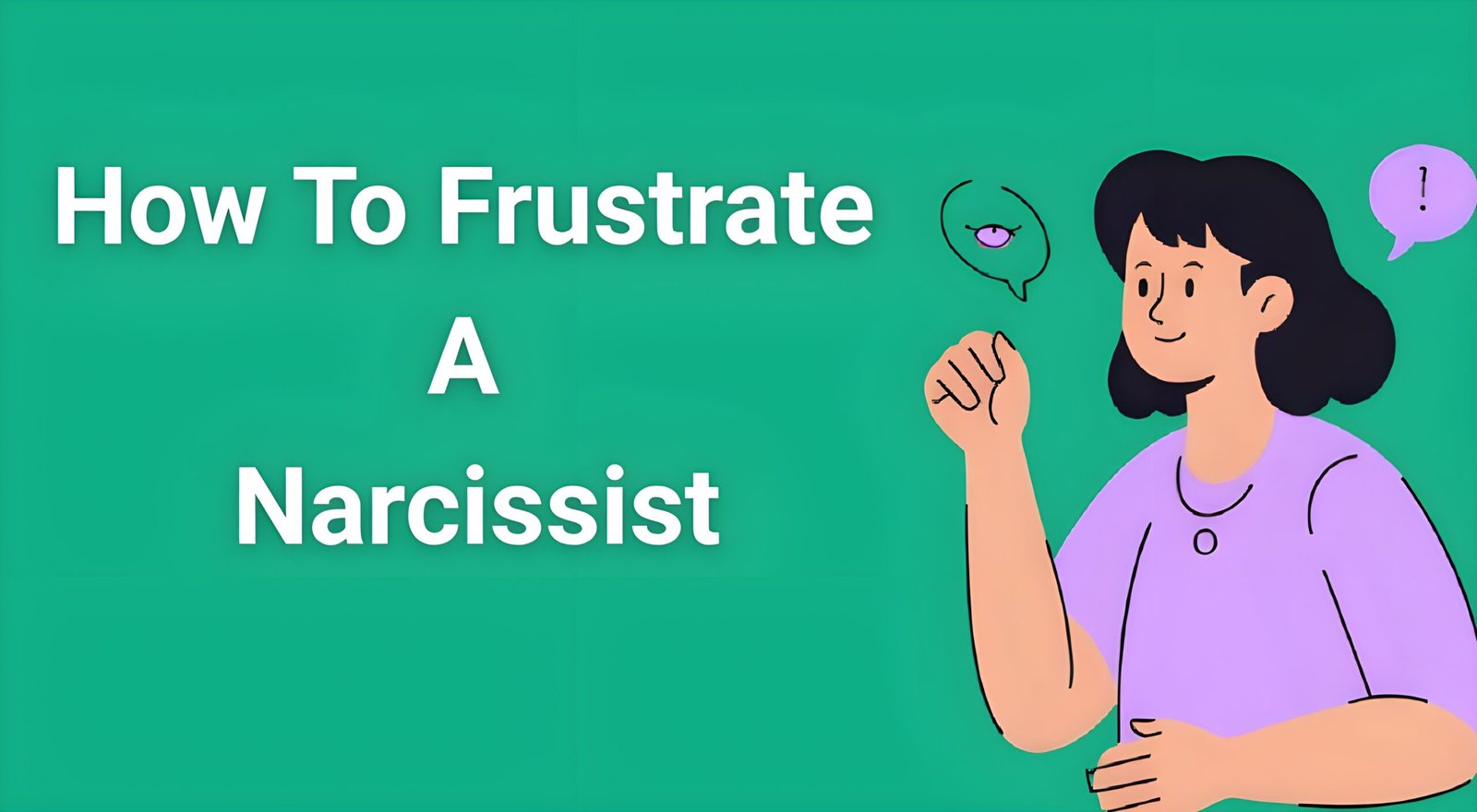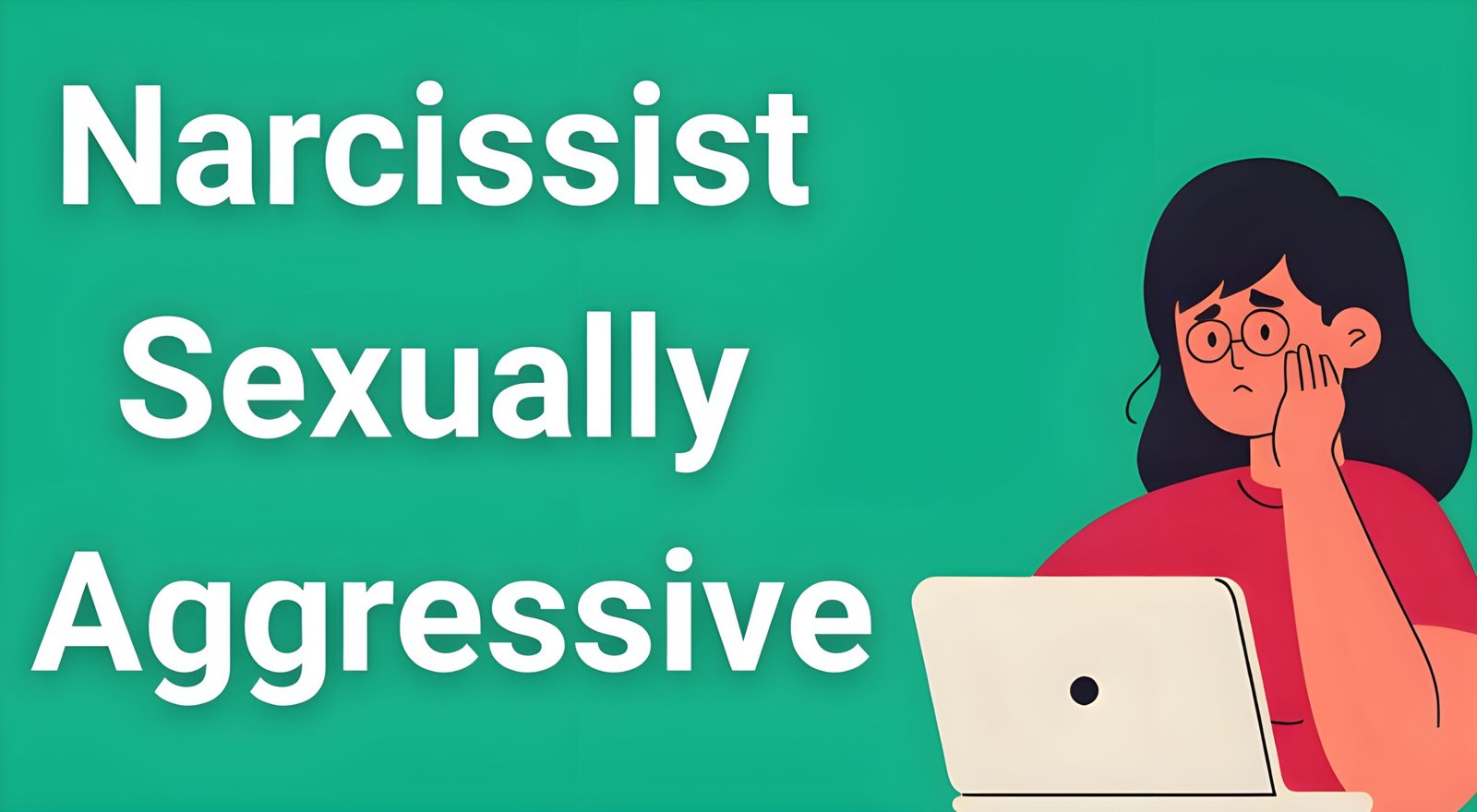If you’ve been searching for how to frustrate a narcissist, you’re likely at your breaking point. The constant manipulation, gaslighting, and emotional warfare has left you feeling powerless, confused, and desperate for some sense of control. You’re not seeking revenge – you’re seeking survival and the psychological tools to protect yourself from further abuse.
- What Makes Narcissists So Difficult to Deal With?
- 12 Psychological Tactics to Frustrate a Narcissist
- Important Safety Considerations
- When Professional Help Is Essential
- The Psychology Behind Why These Tactics Work
- Building Your Support Network
- Frequently Asked Questions
- Moving Forward with Your New Knowledge
Understanding how to frustrate a narcissist isn’t about becoming like them. It’s about reclaiming your power, setting boundaries they can’t cross, and protecting your mental health while you navigate this toxic relationship or work toward freedom.
What Makes Narcissists So Difficult to Deal With?
Before diving into specific tactics, it’s crucial to understand the narcissistic mind. Narcissists operate from a place of deep insecurity masked by grandiose behavior. They require constant validation (narcissistic supply) to maintain their fragile self-image, and they’ll use manipulation, control, and emotional abuse to get it.
Their greatest fears include:
- Being ignored or dismissed
- Losing control over their environment
- Having their false image exposed
- Being held accountable for their actions
- Not being the center of attention
These vulnerabilities become the foundation for understanding how to frustrate a narcissist effectively while maintaining your dignity and safety.
12 Psychological Tactics to Frustrate a Narcissist
1. Master the Art of Gray Rock Method
The Gray Rock technique involves becoming as uninteresting and unresponsive as possible. When you know how to frustrate a narcissist using this method, you essentially starve them of the emotional reactions they crave.
How to implement:
- Give short, monotone responses
- Avoid sharing personal information
- Show no emotional reactions to their provocations
- Become boring and predictable
This method works because narcissists feed off drama and strong emotions. When you become like a gray rock – uninteresting and unresponsive – they lose interest and seek their supply elsewhere.
2. Set and Enforce Ironclad Boundaries
Learning how to frustrate a narcissist through boundary setting is perhaps the most powerful tool in your arsenal. Narcissists are boundary-violators by nature, so when you establish and maintain firm limits, it disrupts their control system.
Effective boundary strategies:
- State your boundaries clearly and calmly
- Follow through with consequences every single time
- Don’t justify, argue, defend, or explain (JADE)
- Document boundary violations
Remember, boundaries aren’t about controlling their behavior – they’re about controlling your response to their behavior.
3. Refuse to Play Their Games
Narcissists thrive on psychological games like gaslighting, triangulation, and blame-shifting. When you learn how to frustrate a narcissist by not participating in these games, you remove their power source.
Game-stopping techniques:
- Don’t defend yourself against false accusations
- Refuse to engage in circular arguments
- Call out manipulation tactics directly
- Stay focused on facts, not emotions
This approach frustrates narcissists because their entire control system depends on your participation in their psychological warfare.
4. Document Everything
One of the most effective ways to understand how to frustrate a narcissist is through meticulous documentation. Narcissists rely on gaslighting and rewriting history to maintain control. When you have evidence, their tactics lose power.
What to document:
- Conversations (when legally permissible)
- Text messages and emails
- Incidents of abuse or manipulation
- Contradictory statements they make
This tactic is particularly frustrating for narcissists because they can no longer rely on your confused memory or their ability to rewrite events.
5. Use Strategic Indifference
Strategic indifference differs from the Gray Rock method in that it’s more targeted. You show complete disinterest in their attempts to impress, intimidate, or manipulate you.
Implementation strategies:
- Don’t react to their achievements or failures
- Show no interest in their drama or crises
- Respond with neutral phrases like “That’s nice” or “Okay”
- Focus your attention and energy elsewhere
This method works because narcissists desperately need to feel important and impactful. Your indifference threatens their entire self-concept.
6. Maintain Your Independence
Narcissists work tirelessly to make you dependent on them financially, emotionally, or socially. Learning how to frustrate a narcissist through independence is crucial for your long-term freedom.
Independence strategies:
- Maintain separate financial accounts
- Nurture relationships outside the toxic dynamic
- Develop personal interests and hobbies
- Build your professional skills and career
Your independence frustrates narcissists because it reduces their control over you and increases your ability to leave.
7. Never Give Them the Reaction They’re Seeking
Understanding how to frustrate a narcissist means recognizing that they’re constantly trying to provoke specific emotional responses from you. They want to see you angry, upset, confused, or submissive.
Emotional regulation techniques:
- Practice deep breathing during confrontations
- Use the 24-hour rule before responding to provocative messages
- Keep a calm, neutral expression during interactions
- Remove yourself from situations when you feel triggered
When you don’t give them the emotional reaction they’re fishing for, they often escalate temporarily before eventually backing down.
8. Focus on Your Own Healing and Growth
One of the most powerful ways to understand how to frustrate a narcissist is to focus entirely on your own well-being and growth. This approach works because narcissists want to be the center of your universe.
Self-focus strategies:
- Invest in therapy or counseling
- Develop new skills and interests
- Build a strong support network
- Practice self-care consistently
When you’re clearly thriving and growing despite their presence, it undermines their belief that they’re essential to your existence.
9. Use Selective Agreement
This advanced technique involves agreeing with narcissists in ways that actually frustrate them. Instead of arguing with their unreasonable demands or statements, you agree in a way that gives you power.
Examples of selective agreement:
- “You’re right, I am being selfish by taking care of my needs”
- “Yes, I am difficult when people try to control me”
- “You’re absolutely right, I don’t want to do that”
This tactic works because they can’t argue with your agreement, but your agreement doesn’t give them what they actually wanted.
10. Implement Information Diet
Narcissists use information as weapons. Learning how to frustrate a narcissist through information control can significantly reduce their ability to manipulate you.
Information diet strategies:
- Share minimal personal details
- Keep your plans and activities private
- Don’t discuss your relationships with others
- Avoid sharing your vulnerabilities or fears
When narcissists lack information about your life, they can’t use it against you or find ways to sabotage your happiness.
11. Maintain Consistent Responses
Narcissists constantly test boundaries and try different manipulation tactics to see what works. When you learn how to frustrate a narcissist through consistency, you make their job much harder.
Consistency principles:
- Respond the same way to similar situations
- Don’t negotiate on established boundaries
- Keep your emotional tone steady
- Make decisions based on your values, not their pressure
Consistency frustrates narcissists because they can’t predict and exploit your weak moments.
12. Focus on Long-term Strategy
The final component of understanding how to frustrate a narcissist involves thinking strategically about your long-term goals rather than winning individual battles.
Strategic thinking includes:
- Planning your exit strategy if possible
- Building evidence for legal proceedings if necessary
- Developing financial independence
- Creating a support network outside their influence
This long-term focus frustrates narcissists because they prefer to keep you focused on immediate crises and drama, preventing you from making strategic moves.
Important Safety Considerations
While learning how to frustrate a narcissist can be empowering, it’s crucial to prioritize your safety. Some narcissists may escalate their behavior when they feel they’re losing control. Watch for signs of increased aggression and have a safety plan in place.
Safety warning signs:
- Threats of violence or self-harm
- Escalating verbal abuse
- Attempts to isolate you further
- Stalking or surveillance behavior
If you notice these signs, prioritize your immediate safety over any tactics to frustrate them.
When Professional Help Is Essential
Sometimes, understanding how to frustrate a narcissist isn’t enough. If you’re dealing with severe narcissistic abuse, trauma bonding, or feel unable to implement these strategies on your own, professional support becomes crucial.
For those seeking deeper understanding of their specific situation, a comprehensive narcissistic abuse analysis can provide personalized insights into the manipulation tactics you’re facing and create a tailored strategy for your circumstances. This type of expert evaluation goes beyond general advice to address your unique relationship dynamics.
If you’re struggling with the intense psychological attachment that keeps you returning to the narcissist despite knowing they’re harmful, you might be experiencing trauma bonding. This neurological addiction is stronger than willpower alone and requires specialized recovery techniques. A structured trauma bond recovery program can provide the daily tools and community support needed to break free from this psychological trap.
For those who can’t leave their situation immediately due to financial constraints, children, or other circumstances, learning how to protect your mental health while still in the relationship becomes critical. Understanding survival strategies for high-conflict situations can help you maintain your sanity and plan for eventual freedom.
The Psychology Behind Why These Tactics Work
Understanding how to frustrate a narcissist is really about understanding narcissistic psychology. These individuals operate from a place of deep shame and insecurity, covered by a grandiose false self. They require constant external validation to maintain their fragile ego structure.
When you implement these tactics, you’re essentially:
- Cutting off their narcissistic supply
- Exposing their lack of real power
- Forcing them to confront their authentic self
- Demonstrating that they can’t control you
This creates what psychologists call “narcissistic injury” – a wound to their false self-image that they find intolerable.
Building Your Support Network
Learning how to frustrate a narcissist shouldn’t be a solo journey. Building a strong support network is essential for maintaining your emotional health and getting objective feedback about your situation.
Support network elements:
- Trusted friends who understand narcissistic abuse
- Support groups for survivors
- Mental health professionals
- Online communities focused on recovery
Having people who validate your experiences and provide encouragement makes implementing these strategies much easier.
Frequently Asked Questions
Q: Is it safe to try to frustrate a narcissist? A: It depends on your specific situation. If there’s any risk of physical violence, prioritize your safety first. These tactics work best when you’re in a position to protect yourself or are planning your exit.
Q: How long does it take for these tactics to work?
A: Results vary, but many people notice changes within 2-4 weeks of consistent implementation. Some narcissists may escalate initially before backing down.
Q: Can these tactics help me fix the relationship?
A: These tactics are designed for protection and empowerment, not relationship repair. Narcissistic personality patterns are deeply ingrained and rarely change without intensive professional intervention.
Q: What if the narcissist escalates their behavior?
A: Escalation is common when narcissists feel they’re losing control. Have a safety plan ready and consider whether it’s time to seek professional help or remove yourself from the situation.
Q: Will these tactics work on all types of narcissists?
A: While these strategies are effective against most narcissistic behaviors, covert narcissists and those with malignant narcissism may require additional specialized approaches.
Moving Forward with Your New Knowledge
Learning how to frustrate a narcissist is ultimately about reclaiming your personal power and protecting your mental health. These tactics aren’t about becoming manipulative yourself – they’re about creating healthy boundaries and refusing to participate in toxic dynamics.
Remember that implementing these strategies takes practice and consistency. Start with one or two tactics that feel most natural to you, then gradually incorporate others as you build confidence.
Your goal isn’t to change the narcissist – that’s impossible without their genuine desire to change. Your goal is to protect yourself, maintain your sanity, and create space for your own healing and growth.
The journey from feeling powerless to feeling empowered takes time, but every boundary you set and every manipulation you refuse to engage with is a step toward freedom. You deserve relationships built on mutual respect, genuine care, and emotional safety.
By understanding how to frustrate a narcissist through these psychological tactics, you’re not just protecting yourself – you’re modeling healthy behavior and taking back control of your life story. The power was always yours; these strategies simply help you remember how to use it.






